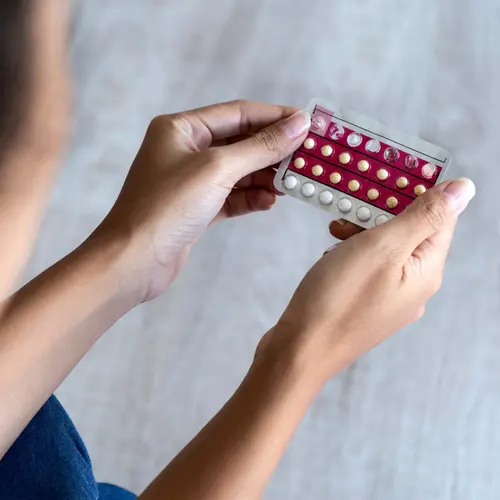Birth control methods like the pill, patch, and intrauterine device (IUD) can help you avoid an unwanted pregnancy. These methods are generally safe and effective, yet they do have some risks you should know about.
Talk to your doctor about these possible complications and whether the method you’ve chosen is a good fit for you.
Blood Clots, Heart Attack, and Stroke
The birth control pill, patch, and ring contain estrogen and progestin. These hormones help to prevent pregnancy by stopping your body from releasing an egg.
More estrogen in your body increases the risk for blood clots -- clumps of solid blood that form inside a blood vessel. Signs of a blood clot are swelling, pain, or cramps in your legs.
If a blood clot breaks free, it could travel to your lungs and block the flow of blood. That can lead to a dangerous complication called a pulmonary embolism. Symptoms include shortness of breath, chest pain, and coughing.
Your risk of a blood clot is very small. Only one out of every 1,000 women who take birth control pills each year will get a blood clot. The patch and ring also slightly increase your risk.
You're more likely to get a blood clot if you:
- Are over age 35
- Are obese
- Smoke
- Have surgery
- Have a family history of blood clots or heart disease
If you have any of these risks, a different form of birth control might be safer for you.
Higher doses of estrogen also have a link to a higher risk of heart attack or stroke, especially in older women and those with uncontrolled high blood pressure. Talk to your doctor about your individual risk.
Cancer
Birth control pills lower the risk for endometrial, ovarian, and colorectal cancers. But they slightly increase the risk for breast and cervical cancers. The longer you're on the pill, the greater your chance of getting these cancers becomes. Within 10 years after you go off the pill, your cancer risk goes back to normal.
If you're already at a higher risk for breast or cervical cancer because of a family history or other factors, ask your doctor if another form of birth control might be better for you.
High Blood Pressure
The pill and other birth control methods that contain estrogen can increase blood pressure, which could increase your risk for a heart attack or stroke. Hormonal birth control methods may not be safe for you if you have high blood pressure that is not well-controlled, especially if you also:
- Are older than 35
- Have other heart disease risk factors, such as high cholesterol or a family history
- Smoke
Migraine
Hormone changes can trigger migraine headaches. The pill and other hormone-based birth control can help balance out hormones and prevent migraines in some women. But in other women, this type of birth control makes these headaches worse or more frequent.
Women who get migraine with aura and also take the pill may be at a higher risk for blood clots called deep vein thrombosis (DVT) and stroke. Birth control that contains only progestin doesn't seem to increase these risks.
Osteoporosis
Depo-Provera, the birth control shot, can reduce bone density. That loss of bone density could make you more likely to get osteoporosis and break bones later in life.
The longer you stay on Depo-Provera, the greater your risk for bone loss that can’t be reversed.
Your doctor might steer you away from this birth control method if you're already at a higher risk for bone loss because:
- You have osteoporosis
- You smoke
- You have an eating disorder
- You've used corticosteroids or anti-seizure medicines long-term
Liver Damage
Birth control pills may have a connection with liver disease and liver cancer. Liver damage is a very rare side effect of the pill. But if it happens, it’s usually in the first few months after you start taking the pill. Symptoms include:
- Tiredness
- Itchy skin
- Nausea
- Dark urine
- Yellow skin and whites of the eyes called jaundice
Liver damage should reverse itself once you stop taking the pill. Check with your doctor before using hormonal birth control if you have or you are at risk for liver disease.
Ovarian Cysts
Women who use hormone-releasing IUDs are more likely to get ovarian cysts. Fluid-filled cysts aren't cancer, and they're usually harmless. They sometimes cause symptoms like belly pain or bloating. They should disappear on their own within 2 to 3 months.
Ectopic Pregnancy
If you get pregnant while you have an IUD, it's more likely to be an ectopic pregnancy. This is when a fertilized egg implants outside of your uterus. An ectopic pregnancy can be very dangerous if you don't treat it quickly, but it's not common.
Pelvic Inflammatory Disease (PID)
In the past, IUDs increased the risk for pelvic inflammatory disease, which is an infection of the uterus, fallopian tubes, or ovaries. Newer IUDs don't pose as much of a risk. When PID does happen, it's usually in the first 3 weeks after an IUD is put inside you.
Having a sexually transmitted infection (STI) can make you more likely to get PID. If you're at higher-than-normal risk for an STI, your doctor should test you before placing the IUD.

